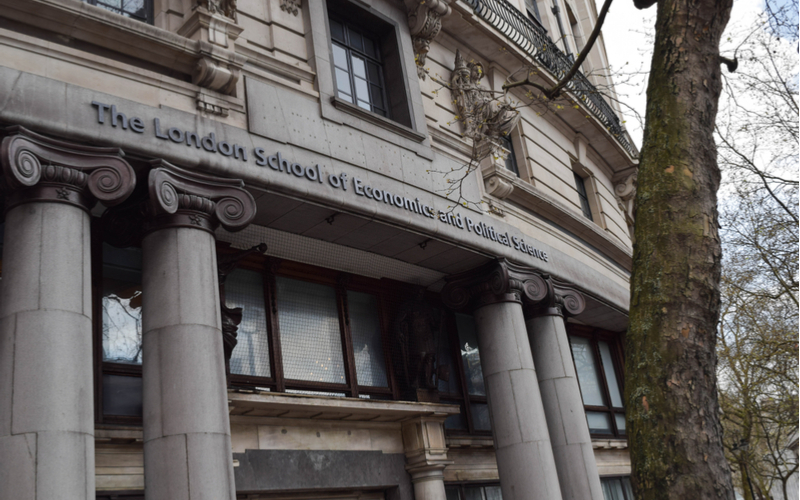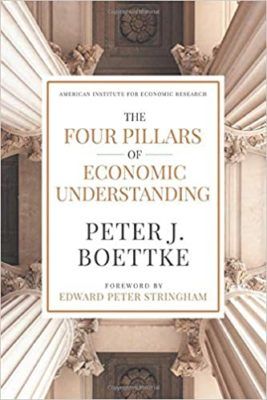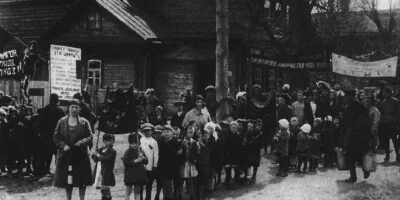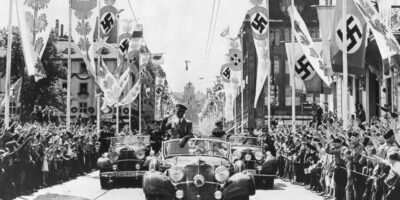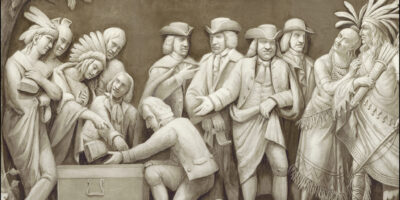Lionel Robbins, Prophet of International Liberalism
I would like to recommend to young students of economics to spend some time reading Lionel Robbins. Between 1930 and 1950 in particular, Lionel Robbins (1898-1984) wrote some of the most clear-headed books in economic science and in economic policy. He is a fascinating character to study. The massive biography on Robbins written by Susan Howson runs over 1,000 pages. That might seem like overkill, but it is not really.
Robbins was thrust into a leadership role at the London School of Economics and Political Science at an early age. Robbins was uniquely positioned in that he was trained in the intellectual tradition of Edwin Cannan and thus at the intersection of classical political economy and modern neoclassical economics. And he could read and absorb German. As a young man, he had read Ludwig von Mises’ Socialism and was impressed. He also was impressed with Mises’ work on the logical status of economic science.
He was instrumental as well in bringing the theory of industrial fluctuations developed by Knut Wicksell and Mises to the English audience, and offered it as an alternative to underconsumption theories and the emerging New Economics of Keynes. In fact, it was an article by a young F.A. Hayek criticizing the underconsumption theories of the U.S. economists W.T. Foster and W. Catchings that inspired Robbins to invite Hayek to the LSE to give the lectures that would be published as Prices and Production and eventually lead to Hayek’s professorship at the LSE.
High Theory
During the 1930s, the Hayek-Robbins seminar would become one of the international hubs of research in economics. Hayek and Robbins shared a commitment to presenting a unified body of economic thought, in which the various schools of economics would fade into the background in favor of the substantive propositions of what economics as science taught. Critical to this exercise was, of course, the logical status of economic theory, and in particular the pure logic of choice as distinct from the nexus of exchange that constitutes the market order.
During these years of high theory, the debates were intense and the stakes were very high as liberalism was under assault intellectually, and its proponents physically threatened by the militarism of fascism and of communism. Against the backdrop of the ongoing economic stagnation of the Great Depression, there arose the debate with Keynes over macroeconomic volatility and the debate with the market socialists such as Oskar Lange and Abba Lerner on the efficiency of socialist planning.
Other debates included imperfect competition and the welfare economics of externalities and monopoly power. These were indeed years of high theory, and Hayek and Robbins were a formidable team basically defending the classical laissez-faire argument as developed by Cannan and Mises the generation before. Critical to this argument was a deep intellectual commitment to articulating the necessary institutional framework for the liberal order to emerge and operate effectively. That framework consisted of private property and the rule of law. But if this institutional framework could be established and maintained, then the liberal economic order of the competitive market could be relied upon to maximize efficiency and improvements in the material conditions of mankind.
The Great Exception
By the late 1930s, international liberalism was in retreat. The market economy, it was argued, was inefficient, unstable, and unjust, and government planning was the panacea of the age. Lionel Robbins decided to step up and provide the counterargument. As Henry Hazlitt pointed out in his August 1, 1937, New York Times review of Economic Planning and International Order (1937), the “brilliant exception” to the tenor of the times was Lionel Robbins.
Liberalism without apology was the answer to the social ills that plagued the world economy. Robbins dedicates his book to the memory of Edwin Cannan, and in 300+ well-written pages he makes the case that “not capitalism, which rightly conditioned, is a safeguard of liberty and progress, but nationalism, which tends to poverty and conflict, is the cause of our present distresses” (1937, 327).
“The principle of international liberalism,” Robbins writes, “is decentralization and control by the market.” Planning, on the other hand, has proven itself to lead to “waste and insecurity,” and thus “now there seems reason to doubt … the practicability of a comprehensive planning from the centre which does not destroy just that which it was intended to preserve” (1937, 221). Civilization was at stake, and sober economic analysis was perhaps the best response. For it is the technical principles of economics that enable the analyst to assess the impact of alternative institutional arrangements on the ability of individuals to realize productive specialization and peaceful social cooperation.
“We should not claim for liberalism,” Robbins insisted (1937, 268), “that the world it could produce would be perfect.… But we may claim that, with all its deficiencies, it would still provide a safeguard for happiness and spontaneity more efficient than any other which has yet been suggested.” The imperfections of man will always be with us.
Adjustment and Adaptation
The question is about the rewards and penalties that guide continual adjustment and adaptation. What matters is that participants are not protected in the market system from the consequences of their decisions, and that these participants also have options to exchange with others, to work with others, to pursue new avenues of enterprise or consumption. This reality of choice and exit imposes a discipline on the system.
International liberalism does not promise that all of humanity will love each other overnight. Perhaps we imperfect beings never will. But what international liberalism does seek is to persuade us that “cooperation between the different members of humanity is advantageous for the furtherance of individual ends” (1937, 326). From this simple mechanism for efficiency, however, grow stronger consequences that turn us away from the “spiritual sickness of nationalism” and the “antics of guttersnipe racialism” and toward the cosmopolitanism of the international division of labor and social cooperation through mutually beneficial trade. “The ideals of Athens,” Robbins states, “still challenge the ideas of Sparta.”
The issue of international liberalism was very much on the minds of the individuals who met in April 1947, a decade after Robbins’s book was published, to found the Mont Pelerin Society. It is often forgotten that it was Lionel Robbins who wrote the statement of aims for the Mont Pelerin Society. It is clear from Robbins’ statement that the Mont Pelerin Society was established to cultivate a constructive and critical dialogue among serious students of society concerning the nature of liberalism.
It is also clear how central to that dialogue economic analysis of the competitive market economy is if progress is going to be made in our understanding. This dialogue was going to focus on “the problem of the creation of an international order conducive to the safeguarding of peace and liberty and permitting the establishment of harmonious international economic relations.”
Mont Pelerin
That was the purpose in 1947, and it remains the purpose today. To avoid any confusion, though, it is critical to read the final paragraph of the statement: “The group does not aspire to conduct propaganda. It seeks to establish no meticulous and hampering orthodoxy. It aligns itself with no particular party. Its object is solely, by facilitating the exchange of views, among minds inspired by certain ideals and broad conceptions held in common, to contribute to the preservation and improvement of the free society” (emphasis added).
The Mont Pelerin Society will be convening in a week (September 30 to October 5) and the titular theme for this year’s conference is “Competition, Discovery, and the Pursuit of Happiness.” That is a joyous celebration of the ability to individuals to realize productive specialization and peaceful social cooperation.
As Adam Smith long ago pointed out, humans have a propensity to truck, barter, and exchange. Trade is the fountain of progress, and the institutions that make the expansion of trade possible — private property and the rule of law — provide the safeguards for liberty. Human betterment results when liberty and progress are safeguarded by the institutional regime of international liberalism.
International liberalism has never been fully realized because of nationalism and other parochial forces at work. We have escaped the horrors of international communism, but not fully escaped from the inefficiencies and injustices of modern mercantilism. Even in 1937, it was important for Robbins to point out that “international liberalism is not a plan that has been tried and failed. It is a plan that has never yet had full chance.” The chaos of his time, he argued, was a result of the retreat from even the partial pursuit of a regime of international liberalism. Privileges doled out by the powerful to create monopolies and restrict trade are the norm. But when the privilege to restrict becomes itself restricted, the disposition of resources does not follow the demands of the monopolists, but the demands of the consumers, and wealth is created and lives improve. This shift would vindicate the power of ideas to overcome the narrow interests of the privileged.
Liberalism is an emancipatory doctrine: freeing humanity from the intolerance of dogma, from the bonds of slavery, from the arbitrary use and abuse of power by the privileged class. Its weapons of emancipation are ideas of basic human equality before the law and the dignity of every individual, and the mechanisms of competition and of mutually beneficial exchange. This generation of new students of society would do well by revisiting the works of Lionel Robbins. His Economic Planning and International Order would be a great place to start.

